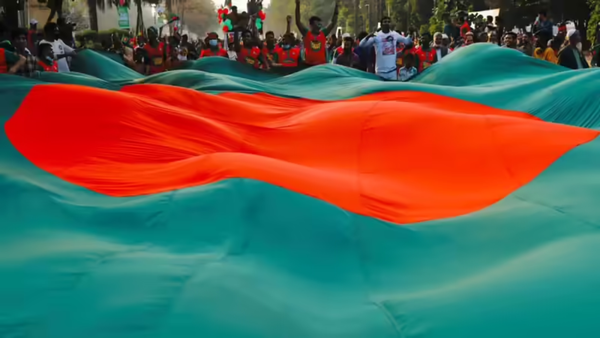
Foreign Secretary David Lammy said it was a “disgrace” that Russia had blocked a United Nations call for a ceasefire in Sudan.
Mr Lammy chaired a UN Security Council session on a joint UK-Sierra Leone draft resolution calling for a national ceasefire, the protection of civilians and the unrestricted passage of aid.
But Russia used its veto to block the proposal, accusing the UK of “neo-colonialism”.
Mr Lammy said the “mean, nasty and cynical veto sends a message to the warring parties that they can act with impunity”.
Russia vetoed a UK/Sierra Leone-led draft Security Council resolution to demand the warring parties in Sudan protect civilians and increase aid access.
— UK at the UN 🇬🇧🇺🇳 (@UKUN_NewYork) November 18, 2024
"Britain doubled aid. Russia blocks aid access."
"Britain works with African partners. Russia vetoes their will."@DavidLammy https://t.co/Kn9Ejixbau
He said: “Shame on (Vladimir) Putin for using his mercenaries to spread conflict and violence across the African continent.
“And shame on Putin for pretending to be a partner of the Global South while condemning black Africans to further killing, further rape, further starvation in a brutal civil war.”
The UK has announced it will double its aid for people in Sudan and those who have fled to neighbouring countries from £113 million to £226 million.
The war in Sudan started in April 2023 when simmering tensions between its military and paramilitary leaders broke out in the capital Khartoum and spread to other regions including Darfur.
Mr Lammy said: “One country stood in the way of the council speaking with one voice.
One country is the blocker. One country is the enemy of peace
“One country is the blocker. One country is the enemy of peace.
“This Russian veto is a disgrace and it shows to the world yet again Russia’s true colours.”
At the Security Council session in New York, Russia’s first deputy permanent representative to the UN Dmitry Polyanskiy fiddled with his phone as Mr Lammy berated him.
In his response, Mr Polyanskiy said Mr Lammy’s speech was “an excellent demonstration of British neo-colonialism” and the UK’s stance was “nothing but an attempt to give themselves an opportunity to meddle in Sudanese affairs”.







